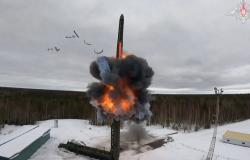Russia is forced to limit bitcoin mining in regions affected by lack of electricity.
Starting in November, Russia will begin banning cryptocurrency mining in certain regions. This decision was taken in the context of electricity shortages accentuated by the invasion of Ukraine, according to Russian energy authorities.
This new law, which imposes restrictions on both private and industrial miners, was signed in early October, a few months after the legalization of cryptocurrency mining for companies and entrepreneurs in Russia.
Cyberattacks: when humans are the weak link
With U-Cyber 360°, the French company Mailinblack allows you to protect your organization and educate your employees in cybersecurity.
From the password manager to email security, continuing training and attack simulations, this solution brings together all the tools to prevent cyber risks.
These new regulations appear as international sanctions taken against Moscow, after the invasion of Ukraine, continue to weigh heavily on the Russian economy.


Vladimir Putin criticizes bitcoin mining
Russian Deputy Energy Minister Yevgeny Grabchak indicated that some regions, including the Far East, southwest Siberia and southern Russia, are already at saturation: “ Miners have exhausted all available electrical capacity », making any new connection to the network impossible until 2030 at the earliest.
« The energy sector is still largely dependent on infrastructure inherited from Soviet times, and it will take years to create new capacity “, he added. In just two years, cryptominers’ electricity consumption has increased by 14%, depleting local energy resources.
Vladimir Putin has already pointed the finger at cryptominers as being responsible for electricity shortages in certain regions — such as Buryatia and Irkutsk. The Russian Energy Ministry had even proposed increasing prices for miners by five to ten times in order to prevent an energy deficit.
The impact of these future restrictions on Russia’s financial digitalization efforts remains unclear, although the deputy energy minister suggested it could hamper some progress in this area.
Canada








